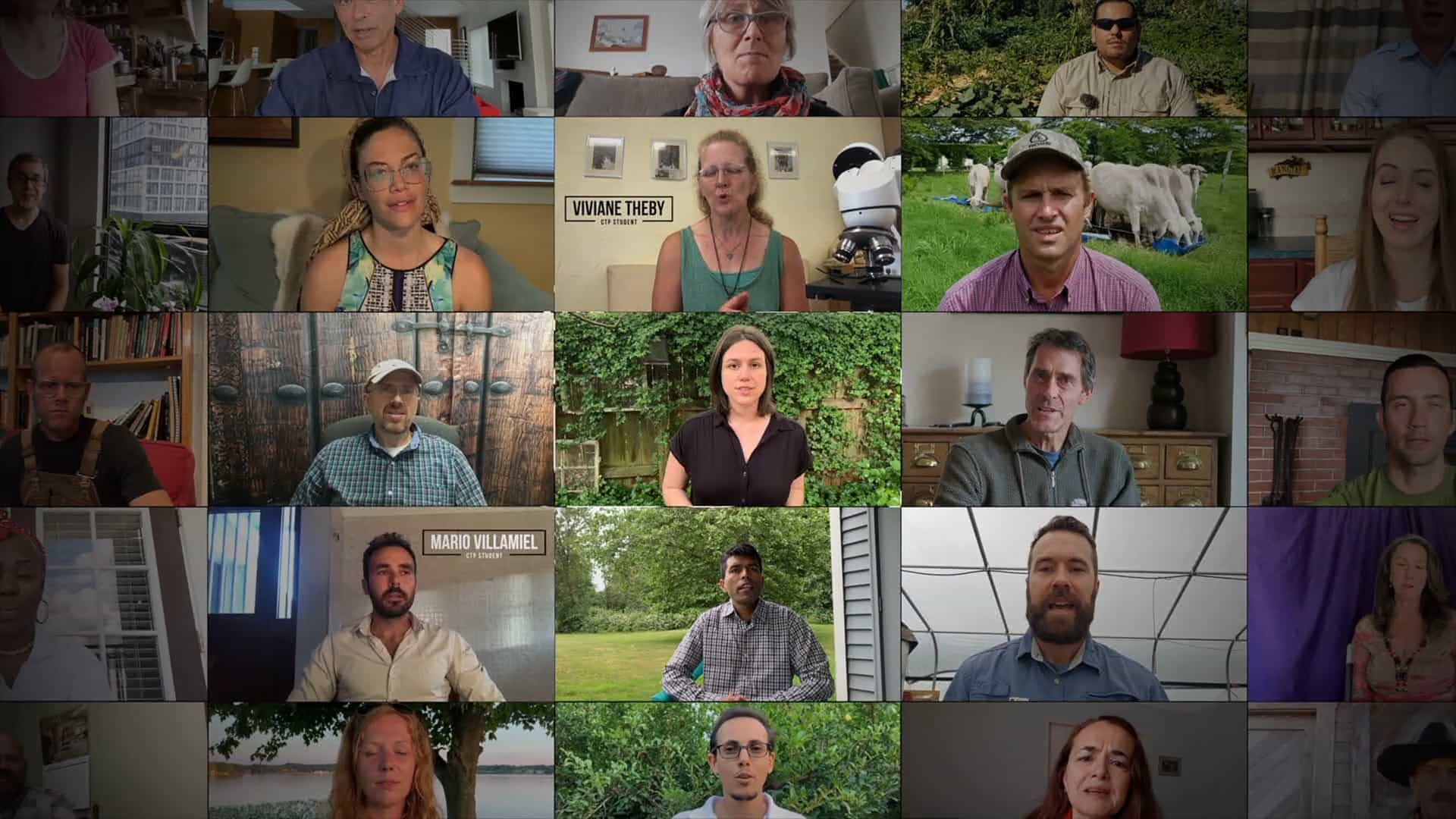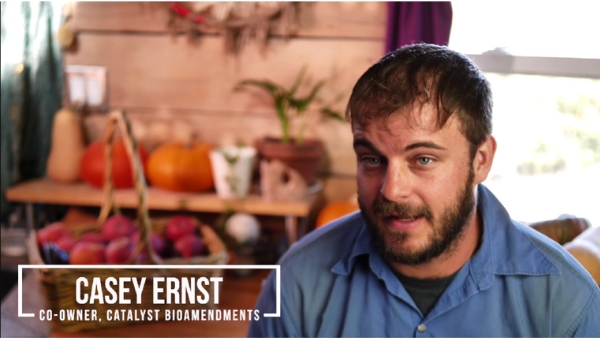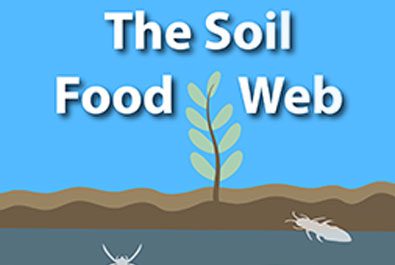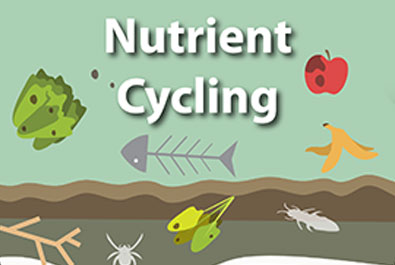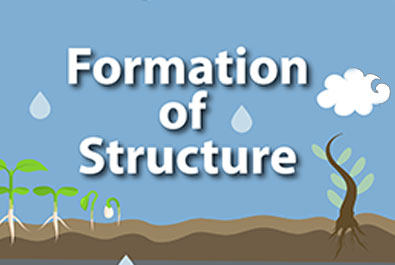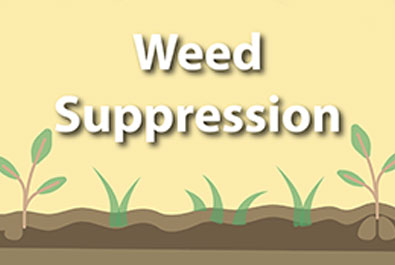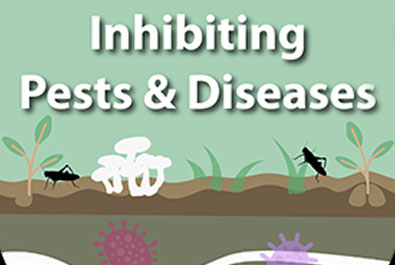Modern Agriculture and Our Soils are Facing a Crisis
Despite agriculturists spending more and more money each year to improve soil fertility and protect their crops, the farming community, growers, landscapers, arborists, land stewards, and gardeners still face huge challenges.
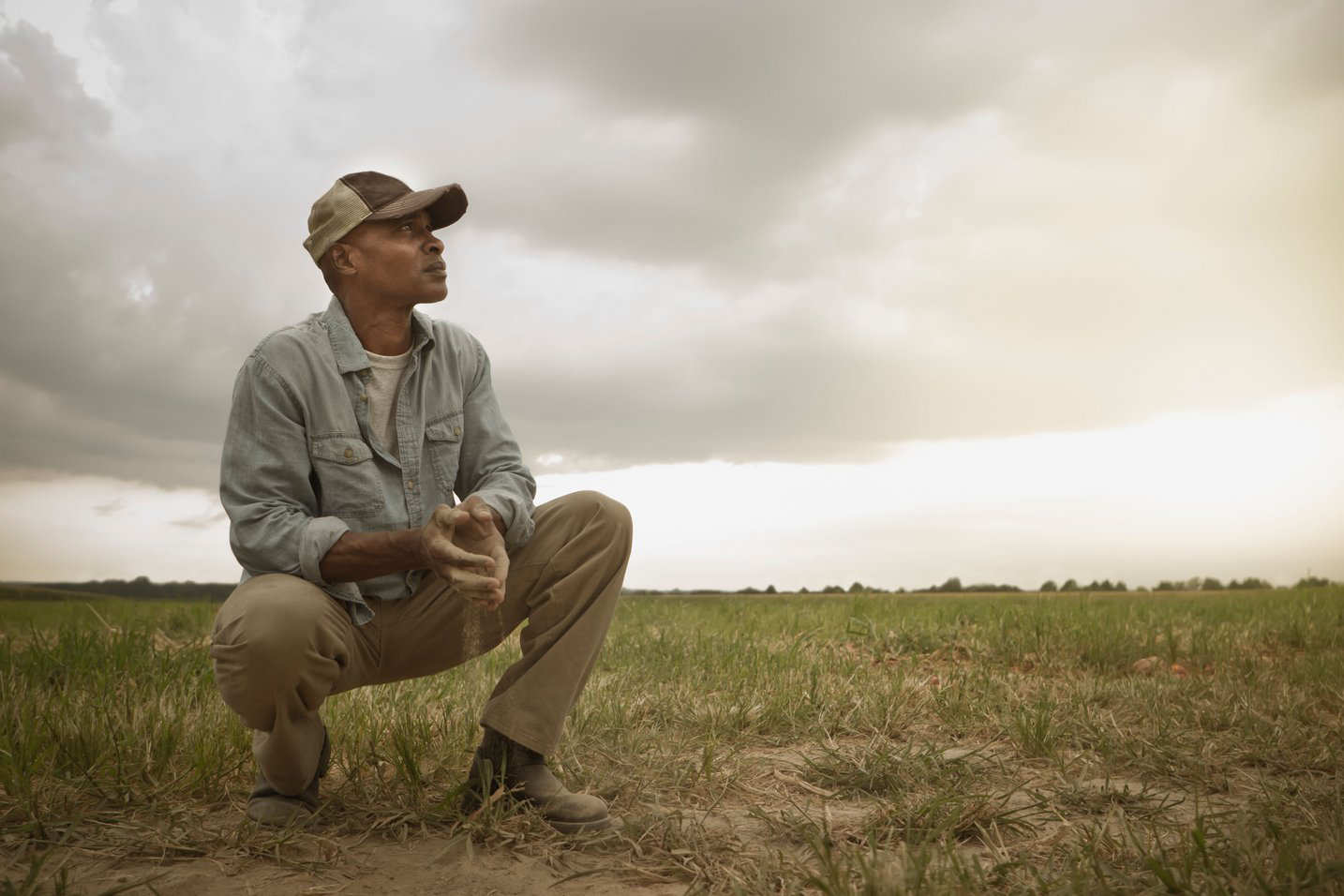
Pests and Diseases
t can feel like it’s a never-ending battle fighting against all the different pests and diseases that damage your plants.
Compaction
Layers of compacted earth result in soil erosion and they make it really tough for plant roots to penetrate deep into the soil profile.
Nutrient Deficiency
Soil fertility is a major problem around the world. This results in lower yields and produce that is nutrient deficient.
Drought and Flooding
As soil structure and organic matter content are degraded over time, the soil’s ability to infiltrate and hold water is compromised.
Low Crop Yields
Many of us are experiencing diminishing crop yields despite the fact that we are pouring on more and more chemical fertilizer year after year.
Increasing Input Costs
For many farmers, the costs of chemical inputs seem to rise every year, making it harder and harder to earn a living.
Welcome to the Soil Food Web School
Your journey into rapid soil regeneration starts now!
Unearth more. Keep reading.
Modern Agriculture and Our Soils are Facing a Crisis
Despite agriculturists spending more and more money each year to improve soil fertility and protect their crops, the farming community, growers, landscapers, arborists, land stewards, and gardeners still face huge challenges.

Pests and Diseases
t can feel like it’s a never-ending battle fighting against all the different pests and diseases that damage your plants.
Compaction
Layers of compacted earth result in soil erosion and they make it really tough for plant roots to penetrate deep into the soil profile.
Nutrient Deficiency
Soil fertility is a major problem around the world. This results in lower yields and produce that is nutrient deficient.
Drought and Flooding
As soil structure and organic matter content are degraded over time, the soil’s ability to infiltrate and hold water is compromised.
Low Crop Yields
Many of us are experiencing diminishing crop yields despite the fact that we are pouring on more and more chemical fertilizer year after year.
Increasing Input Costs
For many farmers, the costs of chemical inputs seem to rise every year, making it harder and harder to earn a living.
Welcome to the Soil Food Web School
Your journey into rapid soil regeneration starts now!
For those interested in
implementing the Soil Food
Web (SEW) Approach, but not
becoming a SFW Consultant.
For those looking for a deeper
understanding of regenerative
agriculture or who want to
become a Soil Food Web
Consultant
Modern Agriculture and Our Soils are Facing a Crisis
Despite agriculturists spending more and more money each year to improve soil fertility and protect their crops, the farming community, growers, landscapers, arborists, land stewards, and gardeners still face huge challenges.

Pests and Diseases
t can feel like it’s a never-ending battle fighting against all the different pests and diseases that damage your plants.
Compaction
Layers of compacted earth result in soil erosion and they make it really tough for plant roots to penetrate deep into the soil profile.
Nutrient Deficiency
Soil fertility is a major problem around the world. This results in lower yields and produce that is nutrient deficient.
Drought and Flooding
As soil structure and organic matter content are degraded over time, the soil’s ability to infiltrate and hold water is compromised.
Low Crop Yields
Many of us are experiencing diminishing crop yields despite the fact that we are pouring on more and more chemical fertilizer year after year.
Increasing Input Costs
For many farmers, the costs of chemical inputs seem to rise every year, making it harder and harder to earn a living.
Welcome to the Soil Food Web School
Your journey into rapid soil regeneration starts now!
Unearth more. Keep reading.
Modern Agriculture and Our Soils are Facing a Crisis
Despite agriculturists spending more and more money each year to improve soil fertility and protect their crops, the farming community, growers, landscapers, arborists, land stewards, and gardeners still face huge challenges.

Pests and Diseases
t can feel like it’s a never-ending battle fighting against all the different pests and diseases that damage your plants.
Compaction
Layers of compacted earth result in soil erosion and they make it really tough for plant roots to penetrate deep into the soil profile.
Nutrient Deficiency
Soil fertility is a major problem around the world. This results in lower yields and produce that is nutrient deficient.
Drought and Flooding
As soil structure and organic matter content are degraded over time, the soil’s ability to infiltrate and hold water is compromised.
Low Crop Yields
Many of us are experiencing diminishing crop yields despite the fact that we are pouring on more and more chemical fertilizer year after year.
Increasing Input Costs
For many farmers, the costs of chemical inputs seem to rise every year, making it harder and harder to earn a living.
Welcome to the Soil Food Web School
Your journey into rapid soil regeneration starts now!
Unearth more. Keep reading.
Modern Agriculture and Our Soils are Facing a Crisis
Despite agriculturists spending more and more money each year to improve soil fertility and protect their crops, the farming community, growers, landscapers, arborists, land stewards, and gardeners still face huge challenges.

Pests and Diseases
t can feel like it’s a never-ending battle fighting against all the different pests and diseases that damage your plants.
Compaction
Layers of compacted earth result in soil erosion and they make it really tough for plant roots to penetrate deep into the soil profile.
Nutrient Deficiency
Soil fertility is a major problem around the world. This results in lower yields and produce that is nutrient deficient.
Drought and Flooding
As soil structure and organic matter content are degraded over time, the soil’s ability to infiltrate and hold water is compromised.
Low Crop Yields
Many of us are experiencing diminishing crop yields despite the fact that we are pouring on more and more chemical fertilizer year after year.
Increasing Input Costs
For many farmers, the costs of chemical inputs seem to rise every year, making it harder and harder to earn a living.
What you’ll learn
These globally recognized and widely acclaimed courses were designed to assist anyone who wants to improve their soils, grow healthier plants without chemical inputs, and improve human health and the health of our one and only planet.
Those who grow plants, food, and pastures, as well as those who want to teach and advise as a consultant, will benefit from the knowledge and hands-on experience gained through these courses.
The Kickstart Your Soil Package is a unique combination of courses that will teach you about the theory and science behind the Soil Food Web Approach, “Nature’s Soil Operating System,” as well as provide hands-on training in making biologically complete compost and using the microscope to identify and quantify the biology in the soil.
Soil Biology
You’ll start with our Foundation Courses, where you’ll learn about the beneficial microbes that were once found in soils all over the world.
Microscopy
Work one on one with a Soil Food Web mentor to develop your skills with the microscope to the high standard required for certification.
Compost
Make your own Biological Compost using Dr. Elaine’s close-control composting method that enables beneficial microbes to multiply rapidly.
The Soil Food Web Foundation Courses
Every Soil Food Web student starts with the Foundation Courses.
We’ve created 63 self-paced lessons that will help you understand the Soil Food Web, the difference between healthy and unhealthy soils, the history of compost, and how to make Biocomplete™ compost.
The Foundation Courses contains 4 modules:
- FC1: Introduction to the Soil Food Web
- FC2: Making BioComplete™ Compost
- FC3: Making BioComplete™ Extracts and Teas
- FC4: Microscopy
After successfully completing the Foundation Courses, you will…
- Have a solid understanding of how the Soil Food Web works and why it’s so important to the soil regeneration process.
- Understand how the SFW Approach can be used at any scale, with a multitude of of crops, and in almost any environment.
- Have the knowledge required to make BioComplete™ Compost, Extracts and Teas.
- Be ready to continue onto our SFW Advanced Programs where you will work with a mentor and get practical training identifying the biology in the soil; making compost, teas, and extracts; and implementing the SFW Approach.
FREE BONUS COURSE
Consultant or Grower Training Program - Stage 1
Once you successfully complete the Foundation Course, you will choose to continue with either the Consultant or Growers Training Program track.
Work one-on-one with a dedicated Soil Food Web mentor.
In stage 1 of the Consultant Training Program, students are assigned to one of our highly-trained mentors. In your 26 hours of dedicated mentor time, you will be guided in two key areas:
- Mastering the art of making BioComplete™ Compost.
- Developing your microscopy skills to meet the standard to become a Certified Soil Food Web Lab-Tech.
After successfully completing the Training Program – Stage 1, you will walk away with…
- Soil Food Web Lab-Tech Certification
- The skills and confidence you need to make BioComplete™ Compost
- The ability to assess the biological components of soil and compost using the microscope
- Knowledge of what materials are available in your area for producing compost, and how to prepare, store, and blend them into a successful compost recipe.
You'll Have Support Every Step Of The Way
Soil Food Web School provides guidance and support from a team of experts in a safe and encouraging environment.
You Have Questions, We Have Answers
Will it work in my region?
Dr. Elaine has used the Soil Food Web Approach to regenerate soils on 6 continents. We now have students in over 100 countries and so far we haven’t found anywhere in the world where the soil ecosystem cannot be restored. (Antarctica is the obvious exception since the soil isn’t accessible there!)
Will it work on all crops and plants?
All plants form symbiotic relationships with microorganisms in the soil. That’s because when plants first evolved on the land, around 500 million years ago, the world’s soils were already populated with microbes. So these relationships have been there from the beginning. Our persistent disturbance of the soil, with the plow and more recently with chemicals, has destroyed the balance that existed in the soil ecosystem. Fortunately, we can put that right very rapidly with the Soil Food Web Approach, which is all about harvesting microbes from the local area, multiplying the aerobic microbes using Dr. Elaine’s close-control composting system, and then re-introducing them to the soil. With regenerative agricultural techniques like no till, the soil biome is protected and so repeated treatments may not be necessary.
Will it work at a large and/or small scale?
The short answer is ‘yes’. Dr. Elaine has worked on large scale projects that cover thousands of acres. She has also worked on some smaller projects too. BioComplete™ Compost and liquid amendments can be produced at large scale, using industrial equipment and also at very small scale, using hand tools and home-made brewing kits. Of course, application at large scale is very different than it would be in someone’s garden, but the good news is that conventional spraying equipment and irrigation systems can be used to deliver BioComplete™ Liquid Amendments to the soil, with some very minor modifications.
Do I need a science background?
Our training programs are designed for people with no scientific or agricultural background. Dr. Elaine has an informal teaching style that makes the lectures easy to follow. You’ll have access to the Student Forum and monthly live Q&A sessions where your questions will be answered.
Will the program fit my schedule?
This is a flexible online program, so you can work at your own pace. The Foundation Courses can be completed in as little as 4 weeks or in as long as 12 months. The Mentoring Program is also designed to be very flexible. You can book sessions with your mentor when you feel you need support, and your mentor will be on hand to answer your emails. The program is designed for people with busy schedules.
Is this a cost-effective solution?
Dr. Elaine Ingham has spent decades collaborating with farmers in different parts of the world, working on a variety of different crop-types, to develop the Soil Food Web Approach.
One of her primary goals was to ensure that farmers could provide their crops with sufficient nutrients and with protection against pests and diseases, without the need to use expensive chemical inputs, such as fertilizers and pesticides. Please take a look at the Case Studies videos on this page where you can hear directly from Farmers and Consultants who are reporting great results and financial benefits when using Dr. Elaine’s techniques as part of their process.
In the Testimonial videos on this page, you will hear from some of the folks who have trained with Dr. Elaine and who have followed in her footsteps to establish themselves as Soil Food Web Professionals. Each of them works independently and they run their own businesses, but they are all part of the Soil Food Web community. Some of them had no background in Farming or Biology. Careers in this space include: Soil Food Web Consultants, Lab-Techs and Compost Producers.
Foundation Courses
What will I learn?
- About the various groups of microorganisms that make up a fullyfunctional soil ecosystem, and how their interactions result in a constant flow of nutrients being made available to plants and trees.
- How plants and trees control the army of microorganisms in their root zones. Plants feed specific groups of microorganisms in order to harvest the particular nutrients required at any given moment. This results in vibrant, healthy plants and in supernutritious fruits and vegetables.
- That there is an abundance of nutrients locked-away in the crystalline structure of the mineral particles that makeup all of the world’s soils – from the desert sands to prairies and forests, there is no soil on earth that is incapable of providing all the nutrients that plants require. The missing-link is the army of soil microorganisms that can access these nutrients and make them available to plants.
- How beneficial soil microorganisms prevent diseases and pests from attacking plants. By occupying infection sites all over the roots and all of the above-ground parts of the plant, beneficial microorganisms make it impossible for the ‘badguys’ to get access to the plant. In addition to this, beneficial microorganisms create aerobic conditions in which the ‘bad-guys’ (which are mostly anaerobes) cannot survive.
- That beneficial microorganisms build structure in the soil, thus preventing soil erosion whilst simultaneously improving water-holding capacity, infiltration, and oxygenation. Having structure in the soil enables roots to go much deeper into the ground, where they can access greater quantities of water and nutrients.
- About the way in which the presence of beneficial fungi results in diminished weed pressure. Have you ever noticed how there are very few weeds to be found in a forest?
- How introducing the Soil Food Web can drastically increase the ability of a soil to capture and store carbon from the atmosphere.
- The history of agriculture and how certain practices have resulted in the destruction of the soil food web in so many of the world’s soils.
- Basic plant physiology and biochemistry. The course covers the basics that are required in order for you to be able to fully understand the processes that are taking place in a living, functional soil.
- About how the soil food web has been reintroduced to over 5 Million acres worldwide. You will review a number of case-studies that demonstrate the effectiveness of the soil food web and how it can be implemented on projects of any scale, any crop and in any climate.
- How to make and apply BioComplete™ compost and liquids.
- About the different kinds of equipment you can use to make and apply the amendments you make.
- The farming practices that are harmful to soil biology and what farmers can do to avoid them.
- How to quantify the different organism groups in a soil, compost or liquid sample, using the compound microscope. This will enable you to measure results as they happen underground and before they happen above ground.
What's included in FC1?
In Foundation Course 1 you will learn:
- About the damage that modern agriculture has done to soils all over the world.
- How Regenerative Agriculture is the soil-ution and how you can rapidly regenerate your soils with the Soil Food Web Approach.
- How the Soil Food Web Approach can be adopted on any scale and in almost any environment, with a multitude of crops.
- About the 4 major groups of Beneficial Microorganisms that are needed to restore ecosystem functions to your soil.
- How Beneficial Microbes work in harmony with your crops to nourish and protect them.
- How benefits such as increased yields, reduced erosion, reduced pest, disease and weed pressures etc. can be achieved.
- About several projects from around the world that Dr. Elaine Ingham has worked on personally.
- About some of the management practices you can adopt to ensure that the biology in your soils is not compromised.
- How soil structure is created by beneficial microbes, improving water infiltration in clay soils and better water retention in sandy soils. And how good structure enables plants and beneficial microbes to penetrate deep into the soil profile, improving plant health.
- How beneficial microbes access the abundance of nutrients stored in the parent material (think sand and clay particles) and how this is then made available to your plants.
- How plants influence the soil biome, by releasing sugary exudates that feed specific groups of beneficial microbes, in return for nutrients.
- How having a balanced soil biome can result in great benefits, such as Weed Suppression and Increased Carbon or Organic Matter content.
What's included in FC2?
In Foundation Course 2 you will learn:
- About the different definitions of compost and why we consider it as a means of multiplying beneficial microbes instead of just a way of delivering nutrients to the soil.
- How to make your own Biological Compost, using Dr. Elaine’s close-control composting method that enables beneficial microbes to multiply rapidly, while suppressing detrimental microbes.
- Techniques that can be used to balance the biology in your compost, ensuring that the 4 main groups of microbes are present.
- How to apply Biological Compost to your soils so that beneficial microbes can interact with your plants in the root zone, offering nutrition and protection.
- About the various types of methods and equipment that can be used to produce Biological Compost, depending on scale. This includes vermicompost and hot-composting.
What's included in FC3?
In Foundation Course 3 you will learn:
- How to produce Biological Extracts and Teas from your Biological Compost, using different types of equipment depending on the scale you are operating at.
- About the uses and application methods of Biological Extracts and Teas
- How to apply Biological Liquid Amendments to your soils using different equipment, depending on the scale of your project. And how you can use conventional spraying equipment with some minor modifications.
What's included in FC4?
In Foundation Course 4 you will learn:
- How to correctly set-up and use a compound microscope.
- About the biological morphology of the 4 major groups of beneficial soil microorganisms.
- How to identify and quantify the key groups of beneficial microbes that all soils need in order to be fully functional, using the compound microscope. This will enable you to conduct your own soil biology assessments on-farm.
- How to process and interpret data.
- How to recognize microarthropods, algae, pollen and other objects in your soil.
Are the courses all online?
Yes, the Foundation Courses are 100% online, theory-based courses. You will watch a series of lectures and take a short quiz after each one.
Are the courses self paced?
Yes, they are. You’ll be able to login at any time, watch a lecture as many times as you like, then prepare for the short multiple-choice quiz that follows each lecture.
When can I start?
You can start as soon as you sign up.
Can I see a breakdown of the Foundation Course Lectures?
There are 63 lectures total in all four Foundation Courses. To see the full breakdown of the Foundation Courses and the lecture titles, please click here.
How much do they cost?
The regular price for the 4 courses is $5,000. With the June, 2024 offer you pay $3,950 and you get lots more FREE!
How long will it take me to complete them?
Students typically require about 150 hours in order to complete the FC at a reasonable pace.
We expect that a student can complete the FC in 4 weeks, if studying full-time. The maximum time allowed to complete the FC is 12 months. You can apply for an extension if you need it.
Do I need any qualifications to start the courses?
The courses are designed for people with no background in the field.
Will this course enable me to find employment as a Soil Food Web Consultant?
Students wishing to pursue a career as a Soil Food Web Consultant will need to progress from the FC to the Consultant Training Program.
What do graduates do when they have completed their training?
Some become Soil Food Web Consultants who help farmers, ranchers, and growers to transition away from using chemicals to a biological/regenerative farming technique. Others focus on producing great compost, which they then can sell to soil consultants or direct to farmers. And others become Soil Food Web Lab-Technicians who perform biological assessments for farmers and growers, or for Soil Food Web Consultants.
Grower Training Program
What's included in GTP Stage 1?
What You Will Learn
- You’ll be assigned to one of our highly trained Mentors who will guide you as you work towards mastering the art of making BioComplete™ Compost using the techniques you have studied in the Foundation Courses.
- You will also work 1-on-1 with your Mentor to develop your microscopy skills to the required standard to become a Certified Soil Food Web Lab-Tech.
- You’ll learn from the experience of others as your Mentor will be able to advise you on common mistakes to avoid, when making your compost.
What’s Included
- 26 hours of total Mentor Time dedicated to helping you to make your own Biological Compost and Master the Microscope.
- Free listing in the directory of Certified Soil Food Web Lab-Techs, once you pass the Microscopy Proficiency Assessment (MPA).
- The Guide to Making Small Scale BioComplete™ Compost manual.
- The Certified Lab-Tech Program (CLP) Course Manual.
- The Launch Your Lab Guidebook.
How long will it take to complete Stage 1 of the GTP?
Students typically need to make at least 6 compost piles before they can achieve the required standards for passing the compost practicum. If you have the resources, you can make multiple piles, with varying recipes, simultaneously, to save time. Each pile will require up to 28 days to complete, once built. A reasonable time-frame for the compost practicum is 3-12 months. Some students may take longer.
How long will it take to complete all 3 stages of the GTP?
The amount of time required depends on your other commitments. Students are expected to complete the GTP within 2 years. The maximum allowable time for completion is 3 years after which your enrollment will expire. This policy is designed to help students to remain focused and motivated. You can of course apply for an extension if there are extenuating circumstances. Below is a breakdown of the time needed to complete each stage of the GTP:
GTP Stage 1 – The BioComplete™ Compost Practicum
Students typically need to make at least 6 compost piles before they can achieve the required standards for passing the compost practicum. If you have the resources, you can make multiple piles, with varying recipes, simultaneously, to save time. Each pile will require up to 28 days to complete, once built. A reasonable time-frame for the compost practicum is 3-12 months. Some students may take longer.
GTP Stage 2 – The BioComplete™ Liquid Practicum
Students can expect to complete Stage 2 within 3 months, or less if they are well prepared and focused.
GTP Stage 3 – Implementation
The duration of the Final Project should be around one growing season +/-1 month. You should allow some time prior to the growing season for preparation; several hours per month, during the growing season, for data collection; and several days of work at the end of the growing season for data analysis and the write-up of your project.
Do I need any qualifications to join the Grower Training Program?
The courses are designed for people who are either Farmers, Ranchers, or Growers. While you don’t need a background in science or any other qualifications, you will need access to some land and other resources. If you are considering taking this course before you purchase land, that’s ok, so long as you have some space and resources to make your compost (and to practice microscopy) in Stage 1, and to make your liquid amendments in Stage 2. You will need the land by the time you reach Stage 3 for implementation.
Will I need to buy any equipment to complete the GTP?
You will need to purchase several pieces of equipment in order to complete each stage. The precise budget will depend on the size of your operation. Your mentor will be able to advise you on equipment selection. The minimum requirements are likely to cost at least $1,000. You may be able to repurpose some of your existing equipment e.g. spraying rigs for the application of liquid biological inoculate.
Can I complete the practical training at the Soil Food Web School?
This is not currently possible, but we do hold 2-week intensive workshops designed to help you get a head-start on all the practical aspects of this training.
Is the Certified Lab-Tech Program included in the Grower Training Program?
Yes it is. GTP students are required to complete the CLP in Stage 1 of the GTP. Click here for more info.
Can I get certified as a Consultant if I am in the Grower Training Program (GTP)?
The GTP is intended for farmers, growers, and ranchers who do not wish to become certified consultants but if you change your mind during your program (before you enter Stage 3), you can transfer from the GTP to the Consultant Training Program (CTP) and complete Stage 3 of the CTP. This will enable you to be certified as a Soil Food Web Consultant.
Can I use the trademarked term BioComplete™?
The term BioCompleteTM is used to refer to compost and liquid amendments that meet the minimum biological requirements defined by Dr Elaine Ingham as being required in order for the amendment to be effective in restoring the soil biome, when correctly applied. You will be trained how to make these amendments in the Grower Training Program.
As this is a trademarked term, protected under copyright law, it can only be used with written permission of the Soil Food Web School.
Introduction to Permaculture
What's included in Introduction to Permaculture?
The late Graham Bell was an internationally respected teacher, author and lecturer in Permaculture and other aligned disciplines over the last thirty years. He was the first person in Britain to be awarded the Diploma in Permaculture by Bill Mollison personally, in 1990. His home in the Scottish Borders with his wife Nancy boasts the longest-standing intentional food forest garden in Britain. Over a thousand visitors a year (in previous times) attest to the amazing productivity of this space.
Course Themes
- What is Permaculture?
- 12 Principles of Permaculture
- Three ethics: Earth Care, People Care, Fair Shares
- Importance of Observation
- Design Sequences
- Why do trees matter and how do they work?
- The Answer Lies in the Soil
- Cycles of Intervention
- Zones, Sectors and Throughputs
What’s Included
- 18 Lectures and Quizzes
- Downloadable Course Materials
- Certificate of Completion
Is this course completely online?
Yes, the course includes 18 pre-recorded lectures and quizzes delivered entirely online. You can login any time you like, watch the lectures as many times as you wish and then take the short, multiple-choice quiz.
Is this course self paced?
Yes, you can access and view the lectures and take the quizzes at your own pace. Students typically require about 40 hours in order to complete the IPC at a reasonable pace. We expect that a student can complete the IPC in 1 week, if studying full-time. You will have access to the IPC content for as long as we maintain the program.
When can I start?
You can start as soon as you sign up.
What will I learn?
- In this program, you’ll learn about some of the principles of permaculture and how they can be applied to the land, to water management and to most aspects of life. Course themes include:
- What is Permaculture?
- 12 Principles of Permaculture
- Three ethics: Earth Care, People Care, Fair Shares
- Importance of Observation
- Design Sequences
- Why do trees matter and how do they work?
- The Answer Lies in the Soil
- Cycles of Intervention
- Zones, Sectors, and Throughputs
How many lectures are in the Introduction to Permaculture?
There are 18 lectures. Each lesson is a lecture delivered by Graham Bell with a PowerPoint presentation, with interspersed contributions from other Permaculturalists from various parts of the world. The PowerPoints will be available to download as PDFs. Each lesson is followed by a short quiz to help you track your comprehension.
Will I be able to ask the instructor questions?
No. Sadly Graham Bell passed away in 2023. Other instructors will address your questions in the dedicated forum.
How much does it cost?
$299 as a free-standing course, but it’s free with the June 2024 promotional bundle.
Do I need any qualifications to start the course?
The courses are designed for people with no background in the field.
Soil Sponge Workshop
What's included in the Soil Sponge Regen Workshop?
Didi Pershouse is the author of The Ecology of Care: Medicine, Agriculture, Money, and the Quiet Power of Human and Microbial Communities and Understanding Soil Health and Watershed Function. She teaches participatory workshops both in person and online, helping to show the nested relationships between soil health, human health, water cycles, and climate resiliency. She is the founder of the Land and Leadership Initiative and the Center for Sustainable Medicine, and a co-founder of the “Can we Rehydrate California?” Initiative. She is an independent trainer and curriculum developer for the UN-FAO Farmer Field School Program and the Andhra Pradesh Community Managed Natural Farming Initiative in India. She was one of five speakers at the United Nations-FAO World Soil Day in 2017.
Healthy soil is the fundamental infrastructure that makes life on land possible, but only when it is alive and functions like a sponge. A living “soil sponge” can soak up rain, store and filter water; and provide health, resilience, and thriving economies for the communities that grow from it.
Farmers and communities that create conditions for a soil sponge to grow experience interrelated benefits such as:
- Healthier crops, animals, and people
- Abundant clean water
- Cooler regional temperatures
- Reduction of wildfire risk
- Resilience to flood and drought
- Reduced erosion, dredging, and road repairs
- Higher farm profitability
- Prevention of algae blooms and dead zones
- Cleaner air
- Increased biodiversity
- Reduced conflicts over resources
- Improved local economies
- Putting atmospheric carbon to work creating landscapes that support all of life.
Topics Covered:
- Landscapes that Work for All of Life
- Collaborating with the Essential Workforce of Other Species
- Measuring Change for Long Term Success
- Money, Life, and Land
- Choosing Effective Intervention Points
Participants will gain:
- a working knowledge of whole systems landscape function
- an increased ability to evaluate land management decisions, practices, and policies
- tools to create and lead soil health initiatives in your region
- a community of practice: deep discussions with people working towards similar aims.
Participants will also have:
- A clear picture of soil’s central role in addressing current economic, social, and environmental pressures.
- A scientific understanding of the living matrix of the soil carbon sponge, and its relationship to carbon, water, and nutrient cycles.
What you’ll get with this workshop:
- Interactive peer learning environment.
- Network with other students/farmers in the group setting.
- 5 weekly sessions each lasting 2.5 hours.
Is this course self paced?
No. This is a five-part, live discussion workshop.
- The first workshop is a 5-week event (once per week for 5 weeks). Sessions last ~2.5 hours and will be held once a week for five weeks.
- Sessions are scheduled for the following 5 dates: July 22, 29, August 5, 12, and 19, 2024
- There will be 2 sessions per day, to suit people in different time zones. The morning session will run from 10:00 a.m. – 12:30 p.m. and the afternoon session will run from 5:00 p.m. – 7:30 p.m Eastern time. Students can only attend one session per day.
- The sessions will be held on the Zoom platform. You will be sent the relevant link after registration.
- Sessions will be recorded, so if you miss a session you can get caught-up.
When can I start?
This is a five-part, live discussion workshop.
- The first workshop is a 5-week event (once per week for 5 weeks). Sessions last ~2.5 hours and will be held once a week for five weeks.
- Sessions are scheduled for the following 5 dates: July 22, 29, August 5, 12, and 19, 2024.
- There will be 2 sessions per day, to suit people in different time zones. Session A will run from 10:00 a.m. – 12:30 p.m. (10:00-12:30) Eastern time and Session B will run from 5:00 p.m. – 7:30 p.m (17:00-19:30) Eastern time. Students can only attend one session per day.
- The sessions will be held on the Zoom platform. You will be sent the relevant link after registration.
- Sessions will be recorded, so if you miss a session you can get caught-up.
What will I learn?
Whether you are a farmer, a policymaker, a journalist, or an investor trying to make a change in the world, after taking this course you will see the potential of simple strategic land-management decisions to create the conditions for land to naturally regenerate its water-absorbing sponge-like structure and function. Click here to download a full class description.
How many sessions are in the Soil Sponge Workshop?
There are 5 sessions, each 2.5 hours long.
How much does it cost?
$300 as a standalone workshop, but it’s free with the June 2024 promotional bundle.
How long will it take me to complete it?
- The workshop is a 5-week event (once per week for 5 weeks) and is scheduled for the following 5 dates: July 22, 29, August 5, 12, and 19, 2024.
- There will be 2 sessions per day, to suit people in different time zones. The morning session will run from 10:00-12:30 and the afternoon session will run from 17:00-19:30 Eastern time. Students can only attend one session per day.
- Sessions will be recorded, so if you miss a session you can get caught-up.
- The sessions will be held on the Zoom platform. You will be sent the relevant link after registration.
Do I need any qualifications to start the course?
The courses are designed for people with no background in the field.
What will I take away from this course?
Whether you are a farmer, a policymaker, a journalist, or an investor trying to make a change in the world, after taking this course you will see the potential of simple strategic land-management decisions to create the conditions for land to naturally regenerate its water-absorbing sponge-like structure and function.

Money-Back Guarantee
You’ll get a 30-day, no questions asked, money-back guarantee on the total price paid. The only condition is that you have watched 32 lectures or less of the Foundation Courses.
Soil Power-Up Package
What's Includes:
- $1,180 OFF Foundation Courses
Normally $5,000 - FREE BONUS: The Consultant Training Program – Stage 1
Normally $1,540
$6,540
$3,920
Monthly Payments
(U.S. Residents only)
Monthly Financing as low as 0% APR*
Pay in Full
BUY NOW(One payment of $3,800)
*Rates from 0% APR or 10-36% APR. Payment options through Affirm are subject to an eligibility check and are provided by these lending partners: http://affirm.com/lenders. See http://affirm.com/licenses for important info on state licenses and notifications.
The Soil Food Web Helps Farmers Increase Yields the Natural Way
We offer farmers a way to make a smooth transition to Regenerative Ag. Working in harmony with nature can be a more cost-effective way to grow crops. You can kickstart your soil health program in MONTHS! How? By restoring the microbial community – also known as The Soil Food Web – to its natural state. Too good to be true? Click here to view some amazing case studies.
What Our Students Are Saying
These are just A FEW of the talented and passionate individuals that make up The Soil Food Web family.
Meet some of the Soil Food Web Professionals who are out there making the change happen in their communities.
Soil Food Web Consultant
California
After a successful career as a program manager in IT, Brian decided to follow his passion for the environment and healthy food. He now runs a successful consultancy, Sprouting Soils. His clients include vineyards, orchards. and cannabis growers.
Soil Food Web Consultant
Connecticut
Todd was one of the first to ever train with Dr. Elaine Ingham. He’s built a successful business, producing Biological Soil Amendments and providing consultancy services. Todd’s company, Harrington’s Organics, employs 7 people and has numerous clients around the US and beyond.
Soil Food Web Consultants & Biological Compost Producers
California
From backgrounds in massage therapy and permaculture, Keisha Wheeler and Casey Ernst have built Catalyst BioAmendments, a successful Compost production company, based in Nevada City, California. They make some of the best compost in the state and are expanding rapidly to meet demand.

Course Instructor
Dr. Elaine Ingham
Dr. Elaine’s™ Soil Food Web Approach has been used to successfully restore the ecological functions of soils on six continents. The courses offered by Dr. Elaine’s™ Soil Food Web School have been designed for people with no relevant experience – making them accessible to individuals who wish to retrain and to begin a meaningful and impactful career in an area that will help to secure the survival of humans and other species.
Social Presence

The BioComplete™ Compost Training Bundle
This popular Soil Food Web training bundle is a unique combination of soil biology theory, microscopy training, compost production, and one-on-one mentorship. Here's what you'll get:
Dr. Elaine’s™
Soil Food Web Approach
After discovering the Soil Food Web Approach (Nature’s Soil Operating System) nearly four decades ago and pioneering research in the field, Dr. Elaine Ingham is recognized as the foremost soil biologist in the world.
Dr. Elaine’s™ Soil Food Web Approach is the key to rapid and effective soil regeneration.




